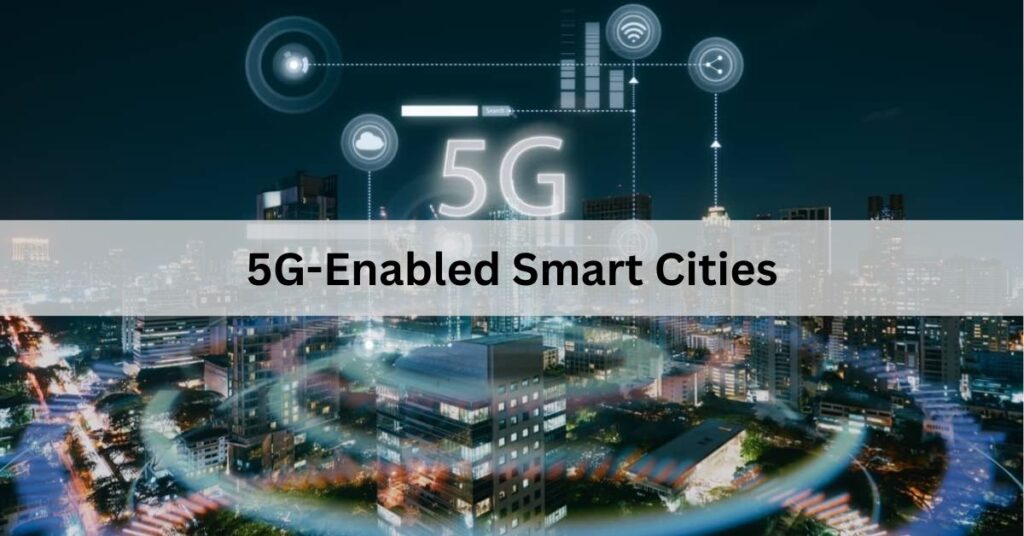In the era of rapid technological advancement, the concept of Smart Cities has emerged as a beacon of innovation and efficiency. At the forefront of this evolution is the integration of 5G technology, promising to revolutionize urban landscapes worldwide. From enhancing connectivity to enabling a plethora of IoT (Internet of Things) devices, 5G-enabled Smart Cities are poised to redefine how we live, work, and interact within urban environments.
Understanding 5G Technology in Smart Cities
5G, the fifth generation of wireless technology, boasts unparalleled speed, ultra-low latency, and massive connectivity capabilities. Unlike its predecessors, 5G can handle significantly more data at faster speeds, making it the ideal backbone for powering Smart City initiatives. This technology enables seamless communication between devices, sensors, and infrastructure, laying the groundwork for a more interconnected and responsive urban ecosystem.
Key Benefits of 5G-Enabled Smart Cities
- Improved Connectivity: With 5G, residents and businesses alike can enjoy faster and more reliable internet connections, enabling smoother streaming, quicker downloads, and enhanced communication across the city.
- IoT Integration: 5G’s high bandwidth and low latency are pivotal in supporting the vast network of IoT devices that characterize Smart Cities. From smart traffic lights and energy-efficient street lighting to connected public transportation systems, IoT integration promises improved operational efficiency and resource management.
- Enhanced Public Services: Smart Cities powered by 5G can deliver more responsive and efficient public services. Real-time data analytics enable city officials to monitor and manage traffic flow, optimize waste management systems, and enhance public safety through advanced surveillance and emergency response mechanisms.
- Sustainable Urban Development: By leveraging 5G technology, Smart Cities can reduce environmental impact through smart energy grids, optimized transportation routes, and efficient resource allocation. This contributes to sustainable urban development and enhances quality of life for residents.
- Economic Growth and Innovation: The deployment of 5G in Smart Cities fosters a conducive environment for innovation and economic growth. It attracts tech-savvy businesses, promotes entrepreneurship in emerging sectors like AI and autonomous vehicles, and creates new job opportunities in digital industries.
Applications Across Various Sectors
The applications of 5G technology extend across multiple sectors within Smart Cities:
- Transportation: Connected and autonomous vehicles powered by 5G can improve traffic management, reduce accidents, and enhance transportation efficiency.
- Healthcare: Remote patient monitoring, telemedicine services, and AI-assisted diagnostics benefit from 5G’s high-speed, low-latency connectivity.
- Education: Virtual classrooms, interactive learning experiences, and remote education initiatives are empowered by 5G technology.
- Urban Planning: Data-driven insights from 5G-enabled sensors and devices aid urban planners in designing more livable, sustainable cities.
Challenges and Considerations
Despite its transformative potential, the deployment of 5G in Smart Cities is not without challenges. These include infrastructure costs, regulatory hurdles, cybersecurity concerns, and ensuring equitable access to technology across diverse urban populations. Addressing these challenges requires collaboration between governments, businesses, and communities to ensure inclusive and sustainable deployment of 5G technology.
The Future of 5G-Enabled Smart Cities
As cities worldwide embrace the promise of 5G technology, the future of Smart Cities looks increasingly dynamic and interconnected. From efficient resource management to improved quality of life for residents, 5G-enabled Smart Cities are paving the way towards a more sustainable, resilient, and technologically advanced urban future.
Conclusion
In conclusion, the integration of 5G technology in Smart Cities represents a monumental leap towards smarter, more efficient urban environments. By harnessing the power of 5G, cities can unlock unprecedented opportunities for innovation, economic growth, and sustainable development, ultimately shaping a better future for generations to come.



